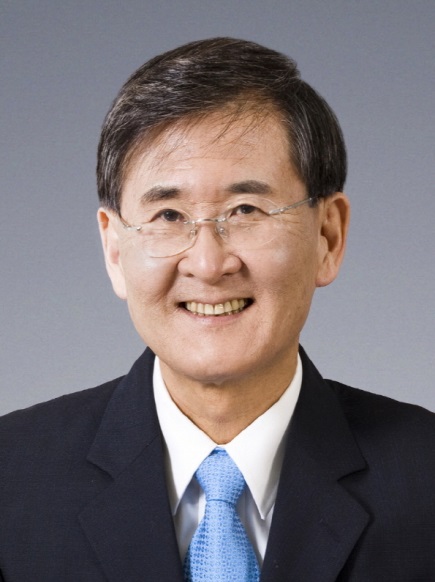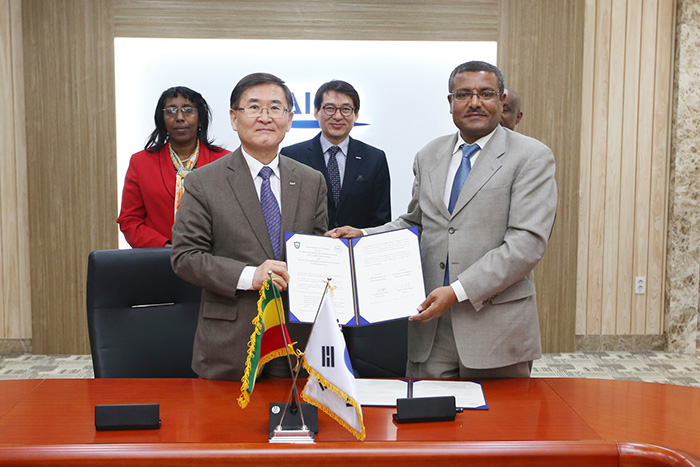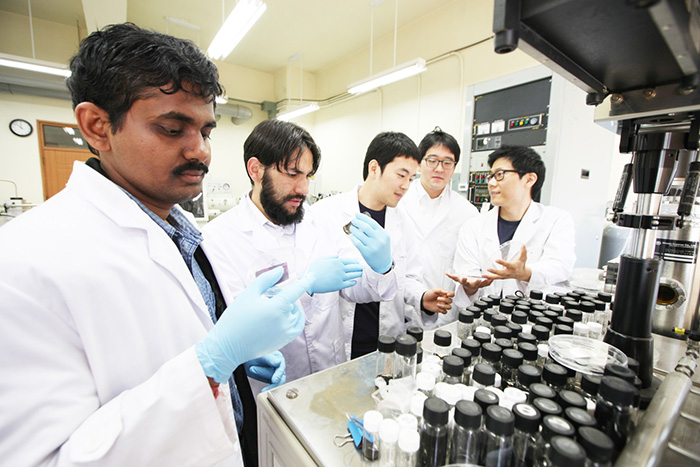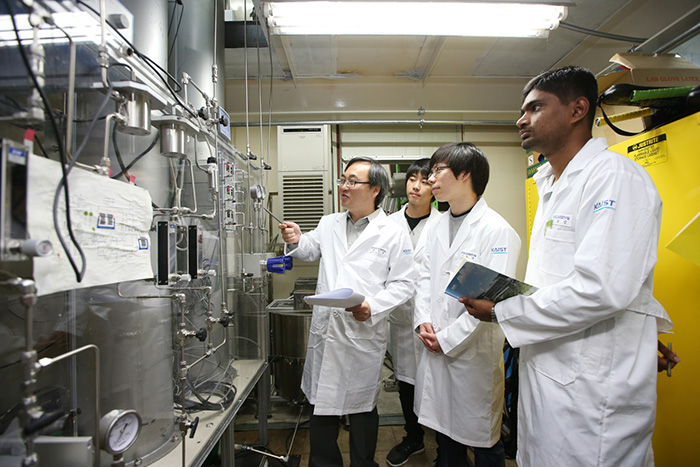Promoting academic exchange with Ethiopia
KAIST(Korea Institute of Science and Technology) was established in 1971 as Korea’s first research-oriented graduate university to foster elite human resources, such as master’s and doctoral degrees, who are equipped with basic theories and capability for practical applications. Currently, KAIST provides R&D collaboration for long-and mid-term research and development projects, studies on basic and practical applications, a diverse pool of R&D institutions and industries.

KAIST, which marks its 46th anniversary this year, has made significant contributions to Korea’s development of science and technology and industrialization based on its never-ending spirit of challenge and creativity, while upholding its core value, “Creativity & Challenge.” In 1970s, KAIST has developed practical technologies which laid the foundation for Korea’s industrialization. In 1980s, KAIST remained committed to developing original technologies that helped Korea stand its own feet in the science field.

In 1990s, KAIST has successfully developed satellites KITSAT-1,2,3, nicknamed “Our Star.” The university also became the first Korean institution to develop a supercomputer. As such, KAIST has managed to upgrade the national image of Korea in science and technology. KAIST moved forward in 2000s by leading the development of advanced technology and producing innovative research results.
KAIST’S academic achievements and capability of practical applications have won international acclaim. KAIST was placed on the 46th overall on the 2016 British QS(Quacquarelli Symonds) World University Rankings with placements in the 13th for the faculty of Engineering and Technology. Thomson Reuters ranked KAIST sixth among the world’s 100 most innovative universities based on its industry-school collaboration.

KAIST Prof. Jun-ho Oh’s Hubo humanoid robot defeated 24 others to win the top prize in the “Darpa Robotics Challenge” which was hosted by the US Department of Defense's Darpa research unit. Prof. Byeong-jin Cho’s “wearable thermoelement generator” won the grand prize at the Netexplo Award 2015, one of the Unesco-selected 10 top innovations that are expected to change the world.
KAIST is now working hard to recruit more foreign talented students as well as domestic talents. The university operates academic program tests exclusively for foreign students in this regard. Foreign students, like Korean counterparts, are exempted from all tuition fees. As most lectures(about 80%) are conducted in English, few overseas students experience the language barrier.

Another advantage of KAIST is School of Freshman. All freshman students will belong to Freshman College and be required to learn basic science, humanities and liberal arts. They are free to take any major courses in the second year. Since students can choose majors after having sufficient time and experience to explore their future course of study, they tend to show exceptionally high-level satisfaction in studies. Moreover, it is easy for students to change their majors. Students can change their majors any time if they choose to do so, without reference to the GPA(Grade Point Average).
Students from diverse countries have begun to show interest in KAIST’s merits. Ethiopia is no exception. Close ties between Korea and Ethiopia date back to 1951 when the African country sent 6,000 troopers to South Korea during the Korean War (1950-53). Ethiopia, which regards South Korea as its role model for economic development, signed an MOU for close cooperation in the science and technology field in 2011. In 2015, an Ethiopian government delegation headed by the Minister of Education, Demitu Hambisa, visited the KAIST campus. In 2016, President Park Geun Hye made a tour of Africa including Ethiopia, and a KAIST professor was appointed vice president of Addis Ababa Institute of Technology (AAiT), which signaled a boost in bilateral relations in science and technology.
Former minister of Urban Development & Construction of Ethiopia Mekuria Haile is now enrolled at a doctoral course at KAIST. In 2016, a group of KAIST students carried on voluntary activities in IT education in the African country. During the recent three years, 69 Ethiopian students had applied for KAIST, of which nine now are engaged in studies at the university. One of them is a medical student of Ethiopia’s prestigious Addis Abba University(AAU). He won the first place in AAU’s medical college entrance exam. In 2017, 12 Ethiopian students had applied for KAIST, of which six were granted admission.
Presently, KAIST has 181 foreign students, who account for 4.7% of total enrollments. The university has plans to raise the proportion of foreign students to 10% by 2020 and 20% by 2025 in a bid to recruit more talented students from overseas. More information about KAIST admissions is available at http://admission.kaist.ac.kr/international.

